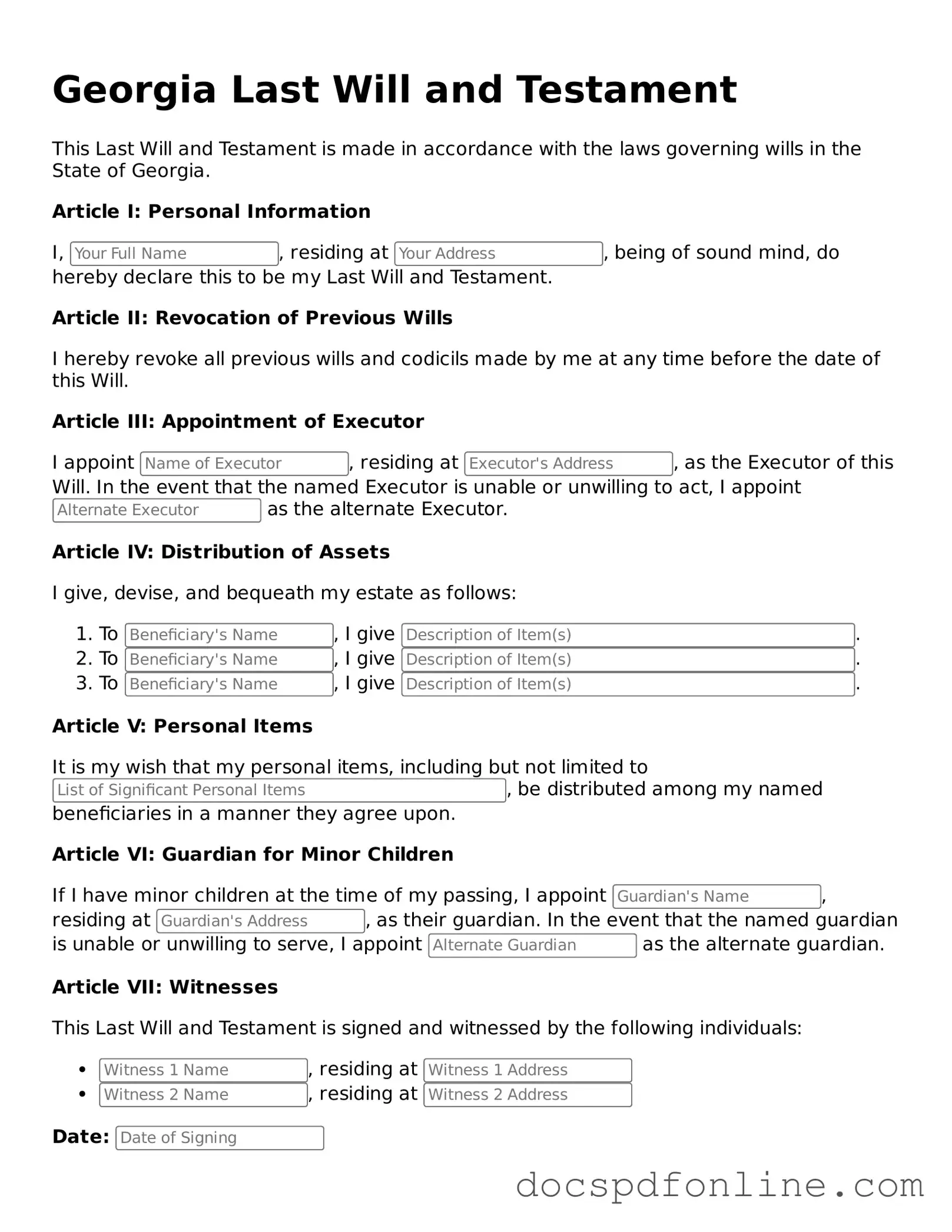Legal Last Will and Testament Template for Georgia
A Georgia Last Will and Testament form is a legal document that allows individuals to outline how their assets and affairs should be managed after their passing. This form ensures that your wishes are respected and provides clarity for your loved ones during a difficult time. Understanding its importance can help you make informed decisions about your estate planning.
Launch Editor Now

Legal Last Will and Testament Template for Georgia
Launch Editor Now
Save time — finish this form fast
Finish Last Will and Testament online — edit, save, download made easy.
Launch Editor Now
or
↓ PDF File
